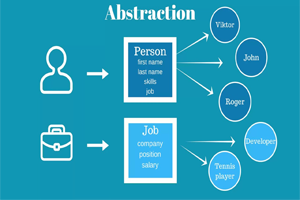The Evolution of Computers – From Simple Machines to Powerful Tools – Imdadullah
Published: 22 Sep 2023
Have you ever wondered how computers came to be? Or what is the difference between the first computers and the ones we use today?
In this article, we’ll learn about the history of computers, from the earliest machines to the latest Supercomputers.
We’ll also explore these topics in this article.
- What is a computer?
- When, who invented it?
- History of computers
- What is computer generation?
- Basics of computer
- Short forms
So, let’s start.
What is a computer?

The computer is a revolutionary machine, It can be programmed to perform various tasks, from simple calculations to complex simulations. Computers are used everywhere, from homes to workplaces and schools.
The computer has a profound impact on society. It has made our lives easier and more efficient in many ways.
Like:
- Automate tasks
- Connect us with others
- Give us access to information.
When and who invented it?
Charles Babbage invented the first computer in the early 19th century. Babbage designed the Analytical Engine, which could perform any mathematical operation. However, the Analytical Engine was never built due to the limitations of technology at the time.
History of computers
The history of computers can be traced back to the early 19th century when Charles Babbage designed a machine called the Analytical Engine that could perform any mathematical operation. However, the Analytical Engine was never built due to the limitations of technology at the time.
The first working computer was the ENIAC, built in 1946 by J. Presper Eckert and John Mauchly.
The ENIAC was a massive machine that weighed over 30 tons and contained over 18,000 vacuum tubes. It was used for various purposes, including ballistics calculations and weather forecasting.
Since the ENIAC, computers have become much smaller, faster, and more affordable. Today, computers are used by people worldwide for various purposes, from work to school to entertainment.
Here is a brief timeline of some of the key milestones in the history of computers:
- 1822: Charles Babbage designs the Analytical Engine.
- 1946: The ENIAC, the first working computer, is built.
- 1947: The transistor was invented, leading to smaller, more reliable computers.
- 1951: The UNIVAC I, the first commercial computer, is released.
- 1971: Intel releases the first microprocessor, the 4004.
- 1975: The first personal computer, the Altair 8800, is released.
- 1981: IBM releases the PC, which popularizes the personal computer.
- 1984: Apple releases the Macintosh, the first commercially successful computer with a graphical user interface.
- 1991: The World Wide Web is launched.
- 1993: The first smartphone, the IBM Simon Personal Communicator, is released.
- 2007: The iPhone is released, revolutionizing the smartphone industry.
What is computer generation?
Computer generations are a way of classifying computers based on the technology used to build them. Each generation of computers is smaller, faster, and more powerful than the last.
Computer Generations
- First Generation (1940s-1950s)
- Second Generation (1950s-1960s)
- Third Generation (1960s-1970s)
- Fourth Generation (1970s-1980s)
- Fifth Generation (1980s-present)
We are currently in the fifth generation of computers, but research is already underway on sixth-generation computers. Sixth-generation computers are expected to be even more powerful and intelligent than fifth-generation computers,
Basics of computer
The basics of a computer are the hardware and software that make up the machine. Hardware is the physical components of a computer, such as the central processing unit (CPU), memory, storage devices, and input/output devices. Software is the set of programs that run on a computer, such as the operating system, word processors, web browsers, and games.
Short forms
Here are some common short forms related to computers:
- AI: Artificial intelligence
- CPU: Central processing unit
- GUI: Graphical user interface
- HDD: Hard Disk Drive
- IC – Integrated circuit
- IO – Input/output
- ISP – Internet service provider
- LAN – Local area network
- LCD – Liquid crystal display
- LED – Light-emitting diode
- MB – Megabyte
- MHz – Megahertz
- RAM – Random access memory
- SSD – Solid-state drive
- USB – Universal serial bus
- VGA – Video graphics array
- WWW – World Wide Web
comparison of the advantages and disadvantages of old and modern computers
| Advantages |
|---|
|
| Disadvantages |
|---|
|
Conclusion
Computers are amazing machines that have revolutionized society. They have made our lives easier and more efficient in many ways. Computers have profoundly impacted the world, from automating tasks to connecting us with others to giving us access to information.
Computers have come a long way since the early days of the analytical engine. Today, we have computers that are incredibly powerful and versatile. We use them for everything from work to school to entertainment.
As technology continues to advance, we can expect to see even more amazing and innovative applications of computers in the future.
Click here to learn more about the history of computers and how they are used today.
FAQs
What is the difference between old and modern computers?
Old computers are typically larger, heavier, and slower than modern computers. They also have less memory and storage. Modern computers are smaller, lighter, and faster than old computers. They also have more memory and storage.
What are the advantages of old computers?
Old computers are typically less expensive than modern computers. They are also easier to repair and more compatible with older software and hardware.
What are the disadvantages of old computers?
Old computers are slower and have less memory and storage than modern computers. They are also less secure and less user-friendly.
Which type of computer is better for me?
The best type of computer for you depends on your needs and budget. An older computer may be sufficient if you are looking for a basic computer for everyday tasks. However, a modern computer is the better choice if you need a computer for more demanding tasks, such as gaming or video editing.
How can I dispose of my old computer safely?
There are a few ways to dispose of your old computer safely:
- Donate it to a charity or school.
- Sell it to a used computer dealer.
- Recycle it at an electronics recycling center.

- Be Respectful
- Stay Relevant
- Stay Positive
- True Feedback
- Encourage Discussion
- Avoid Spamming
- No Fake News
- Don't Copy-Paste
- No Personal Attacks

- Be Respectful
- Stay Relevant
- Stay Positive
- True Feedback
- Encourage Discussion
- Avoid Spamming
- No Fake News
- Don't Copy-Paste
- No Personal Attacks






